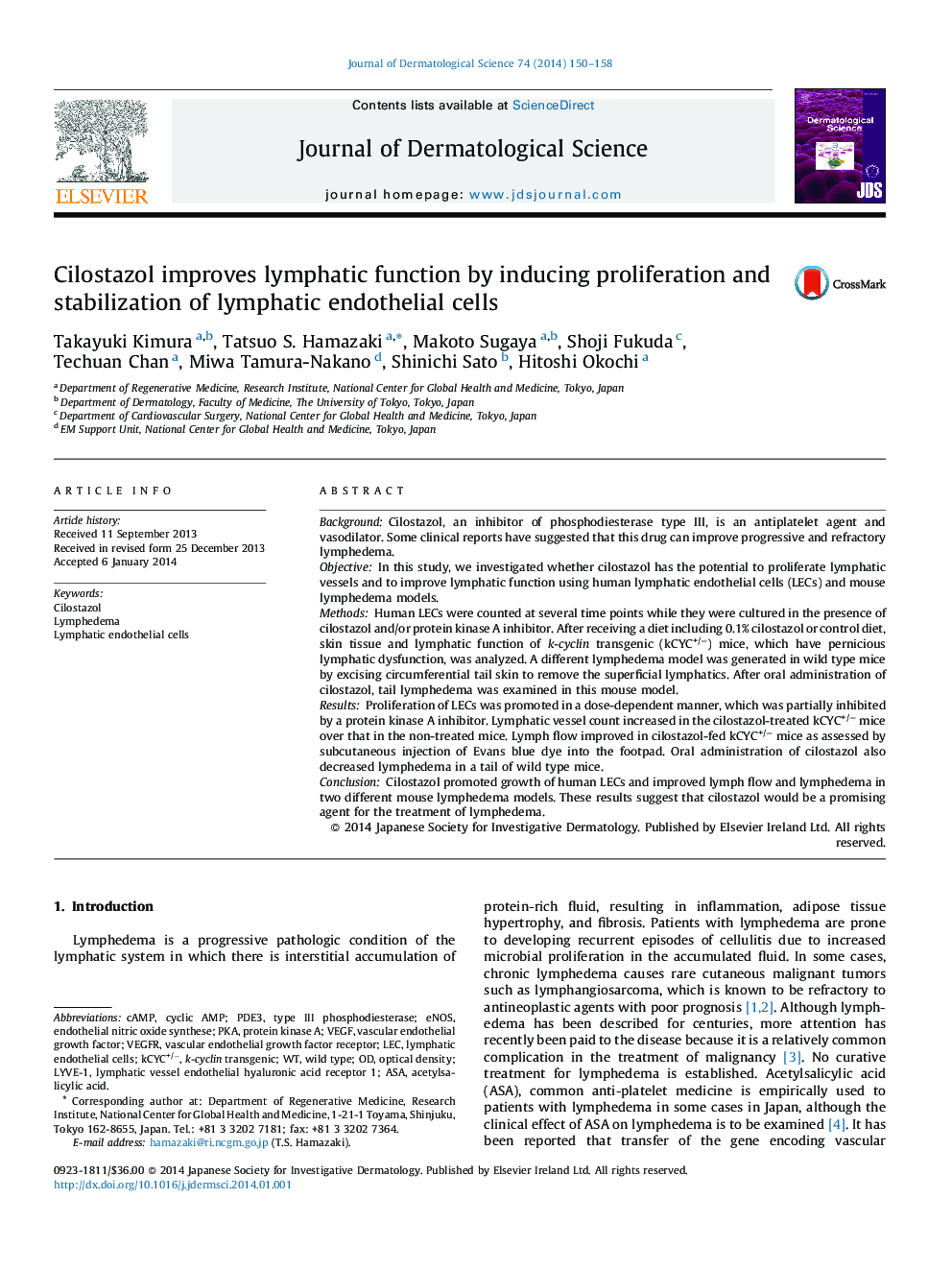| Article ID | Journal | Published Year | Pages | File Type |
|---|---|---|---|---|
| 3212892 | Journal of Dermatological Science | 2014 | 9 Pages |
BackgroundCilostazol, an inhibitor of phosphodiesterase type III, is an antiplatelet agent and vasodilator. Some clinical reports have suggested that this drug can improve progressive and refractory lymphedema.ObjectiveIn this study, we investigated whether cilostazol has the potential to proliferate lymphatic vessels and to improve lymphatic function using human lymphatic endothelial cells (LECs) and mouse lymphedema models.MethodsHuman LECs were counted at several time points while they were cultured in the presence of cilostazol and/or protein kinase A inhibitor. After receiving a diet including 0.1% cilostazol or control diet, skin tissue and lymphatic function of k-cyclin transgenic (kCYC+/−) mice, which have pernicious lymphatic dysfunction, was analyzed. A different lymphedema model was generated in wild type mice by excising circumferential tail skin to remove the superficial lymphatics. After oral administration of cilostazol, tail lymphedema was examined in this mouse model.ResultsProliferation of LECs was promoted in a dose-dependent manner, which was partially inhibited by a protein kinase A inhibitor. Lymphatic vessel count increased in the cilostazol-treated kCYC+/− mice over that in the non-treated mice. Lymph flow improved in cilostazol-fed kCYC+/− mice as assessed by subcutaneous injection of Evans blue dye into the footpad. Oral administration of cilostazol also decreased lymphedema in a tail of wild type mice.ConclusionCilostazol promoted growth of human LECs and improved lymph flow and lymphedema in two different mouse lymphedema models. These results suggest that cilostazol would be a promising agent for the treatment of lymphedema.
